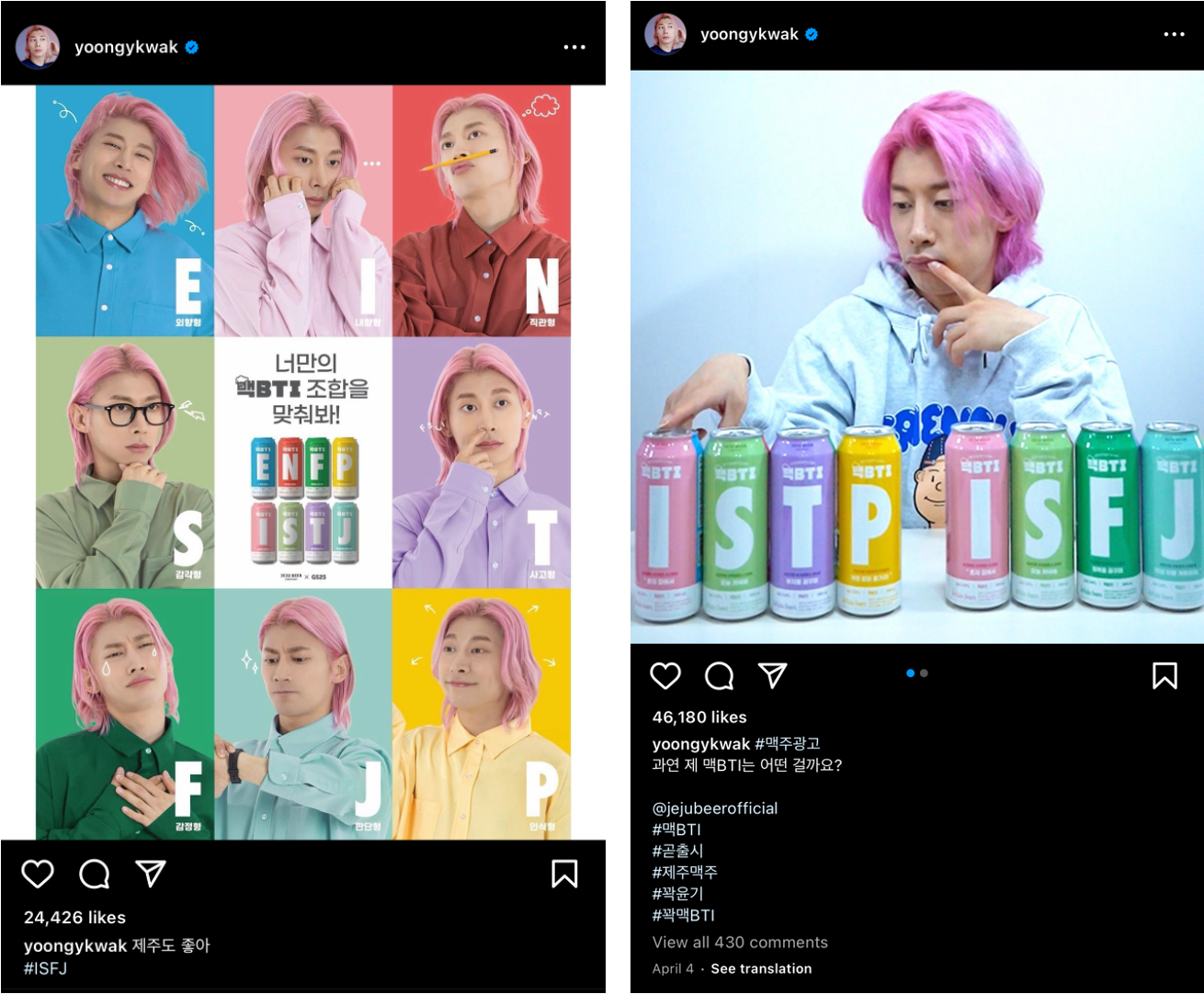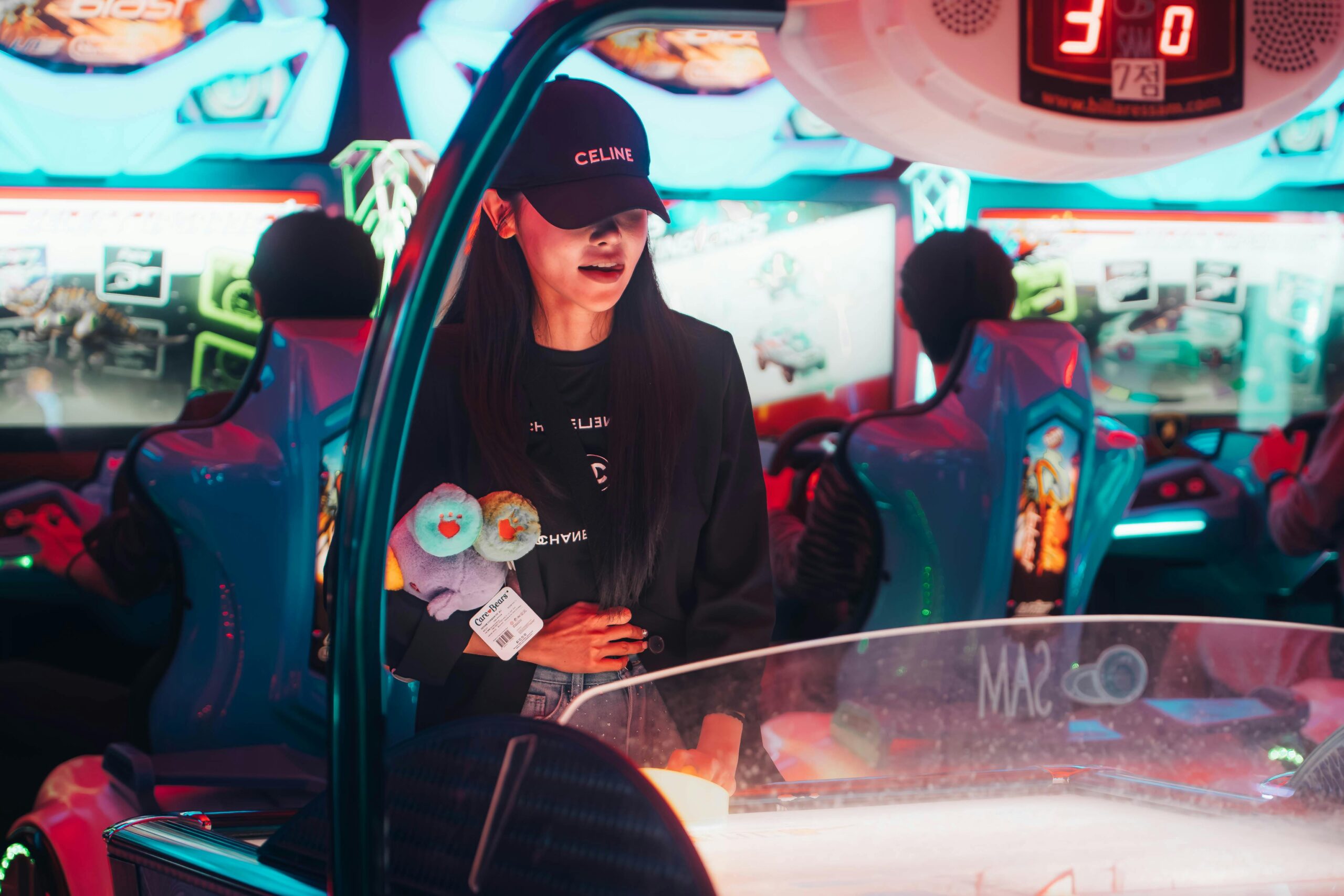The MZ Generation (MZ세대), a term used only in South Korea, refers collectively to Millennials (born in the 1980s to early 1990s) and Generation Z (born in the late 1990s to mid 2000s). Unlike in other countries, young consumers are often grouped together. While this grouping doesn’t fully capture the complexities of each generation, they share key similarities that make the combined category useful. Making up 33% of the population as of November 2025, the MZ Generation holds significant social, economic, and cultural influence in Korea.
Read our Korea’s MZ Generation report

The MZ Generation, digital natives (디지털 원주민), use social media during their entire consumption process
Having grown up in the digital era, the MZ Generation is comfortable using new technologies, such as social media, not only for entertainment but also for conducting thorough research before making purchases. Compared to other groups, they have the highest social media usage rate. According to a 2024 report by the Korea Information Society Development Institute, based on data from 4,077 households and 9,757 individuals, the MZ Generation showed the highest social media usage: Millennials at 90.6% and Generation Z at 87.2%.
Among the top platforms, Instagram was widely used, with nearly seven-tenths of Gen Z and about three-fifths of Millennials selecting it as one of their main social media platforms, higher than Facebook, Kakao Story, TikTok, and other platforms. While not included in the study, YouTube is also a dominant platform. Although not unique to this generation, YouTube has replaced traditional TV. Therefore, in addition to ads, consumers are exposed to embedded marketing in South Korea through individual channels.

The MZ Generation is more self-aware than other generations
The MZ Generation is more interested in learning about themselves and consuming what is best for them rather than what others believe is best. In other words, their purchasing is becoming more individualized. At one point, the personality MBTI test was so popular among consumers that brands launched MBTI-inspired products. For instance, GS25 collaborated with Jeju Beer to launch “BeerBTI” (맥BTI) with four different cans showing different letters from the MBTI test. According to a GS25 representative, over 170,000 units were sold within the first five days of its launch.

Young people are becoming less trend-driven as “omnivore consumption” (옴니보어 소비) rises
While young consumers are often seen as trend-sensitive, this is becoming less the case. This shift is defined by “omnivore consumption” (“옴니보어 소비”). This trend describes consumers increasingly choosing products that reflect their personal tastes, values, and lifestyles without limiting themselves to specific products or categories. Although this applies to other age groups, it is particularly prominent among younger consumers.
Unlike personalization, which emphasizes “what suits me,” omnivore consumption focuses on “I choose from anywhere.” Consumers explore multiple brands and categories instead of restricting their purchases to a single brand or product type to ultimately build their own multi-layered identity.
In pursuit of a “meaning-out” (미닝아웃) lifestyle
The MZ Generation consumers are adopting a “meaning-out” (미닝아웃) lifestyle, where they express their values through consumption. They select brands and products that align with their values and express themselves on social media.
Environmentalism is one of the main values that has been expressed through the “meaning-out” lifestyle. In a 2022 survey conducted by the Korea Chamber of Commerce and Industry, almost two-thirds of 380 MZ Generation respondents said they purchase products from companies that practice ESG (Environmental, Social, and Governance) even if it is more expensive.
Sometimes, the MZ Generation may even participate in boycotts in South Korea. In 2022, there was a boycott against the food giant SPC Group after its poor management of the death of one of its workers. What started as a protest by labor unionists led to the public deciding not to buy from the brands under SPC. Famous brands include Paris Baguette, Baskin-Robbins, and Dunkin Donuts.
The limitations of the term MZ Generation
The MZ Generation doesn’t perfectly depict the consumers in South Korea. Although it has been used by businesses to understand their consumers, there is a lot of criticism about categorizing people merely based on their year of birth. Critics consider it “not appropriate” to classify people based on their generation for several reasons, including the limited studies to prove its validity, the possibility of creating generational conflict, and the overlooking of individual differences. Therefore, some say that it would be more appropriate to define consumers based on various characteristics. When doing consumer research in South Korea, we consider many ways to find tribes and groupings of consumers other than their generation.

The MZ Generation in South Korea continues to reshape consumption
- They are known for being digital natives. They are familiar with the new technologies compared to previous generations. Therefore, they are more likely to use them during the entire consumption journey, doing extensive research before purchase and sharing their purchased products on social media.
- They are more self-aware. They are willing to invest in developing themselves and expressing themselves through consumption. This is reflected through the “omnivore consumption” and “meaning-out” lifestyle.
- Although the term MZ Generation is useful in understanding consumers in South Korea, it should not be the only standard. The term still faces a lot of criticism, including not being supported by scientific studies.





